Business casuals for men
Business casual is a dress code men are confronted with everywhere but what does it really mean? In this Business Casual Guide for men we answer this question in detail, explain DO’s and DON’Ts and provide specific advice on what you can wear so you are dressed to the T.
Until recent times, the Business Casual attire did not exisit. There was simply daywear and evening wear. During the day, men would wear a stroller coat or a morning coat for business. In the evening they would change into a tailcoat for dinner and events. Once retiring for bed, pyjamas would be donned as would a dressing gown, but the chance of anyone seeing them wear this besides their spouse and perhaps a valet or butler was slim to none. The most casual attire a gentleman might wear would have perhaps been a tweed suit while shooting or for a walk in the park.
Around the turn of the century, black tie made its mark and the tuxedo overtook the white tie dress code in popularity. Business suits became standard and they stayed that way for quite awhile.
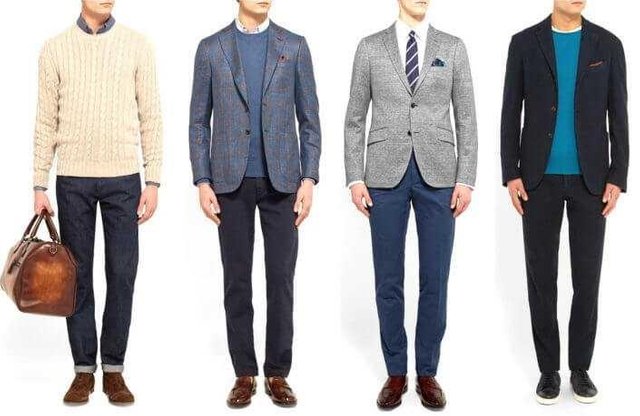
Aloha Friday Pave The way For Business Casual
Then came the year 1966. Until then, you had casual wear and business attire. Casual wear was worn on the weekends at home, but if you worked in an office, you wore a suit and a tie. There was no debate. Then, a company that made Hawaiian shirts began to strategize how they could increase their profits and a brilliant ad agency in Hawaii came up with the idea of “Aloha Fridays”. They began petitioning local businesses to allow their employees to wear the Hawaiian shirt on Fridays. Initially penned as a way of showing local pride, it ended up quickly becoming a trend and a popular way of avoiding the rat race of corporate America. The fad began to catch on and soon it hopped off the Islands and made its way to the mainland.
headerDockers Ad Campaign Brings Khakis To The Office.
By the early 1990’s Levis began to notice the trend on the mainland and many of its customers in upper management began complaining that their employees were too casual, wearing shorts and t-shirts to work. The sale of jeans was in decline and so they took it as a chance to market their new brand called ‘Dockers’ to the corporate community. They began to launch expensive ad campaigns for their khaki pants and it took off. Employers looked at it as a fair compromise between shorts and suits and the employees agreed. As this was occurring, television shows like Saved by the Bell and movies about wealthy country clubs began showing the Preppy, Ivy and Trad styles to those outside the Northeastern United States. Companies like Brooks Brothers, Ralph Lauren and J.Crew jumped on the opportunity to increase the sale of their casual wear. They began marketing polo shirts, sport shirts and chinos as perfect options that worked flawlessly or better than the Levi Dockers brand. It was a revolution of sorts.
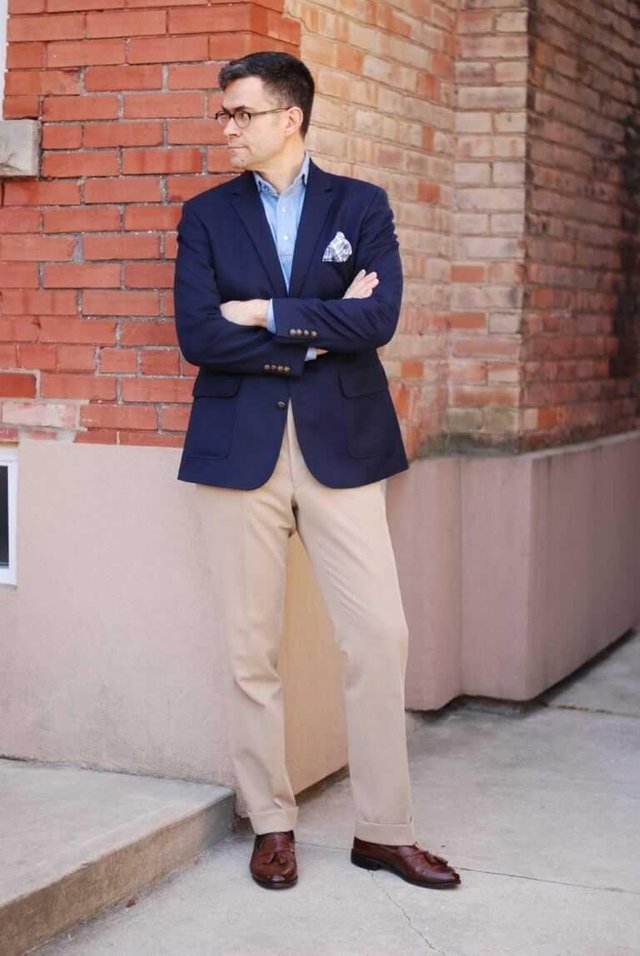
headerHow Business Casual is defined today for men?
header1. # headerBusiness Casual in Traditional White Collar Job – Law Firm, Accounting, Banks…
If business casual attire is allowed in this kind of work environment it is the most formal of all business casual dress codes and it consists of the following item
headerBlazer or Sport
The blazer is an essential part of a business casual wardrobe. Avoid gold buttons and stick with dark colors. Navy is the most classic color and your best bet. Single breasted is the standard while a double breasted navy blazer can look more powerful. To learn more about the blazer in general, check out our blazer guide.
If you wear a sport coat, opt for something subdued with a subtle pattern and avoid loud summery colors.
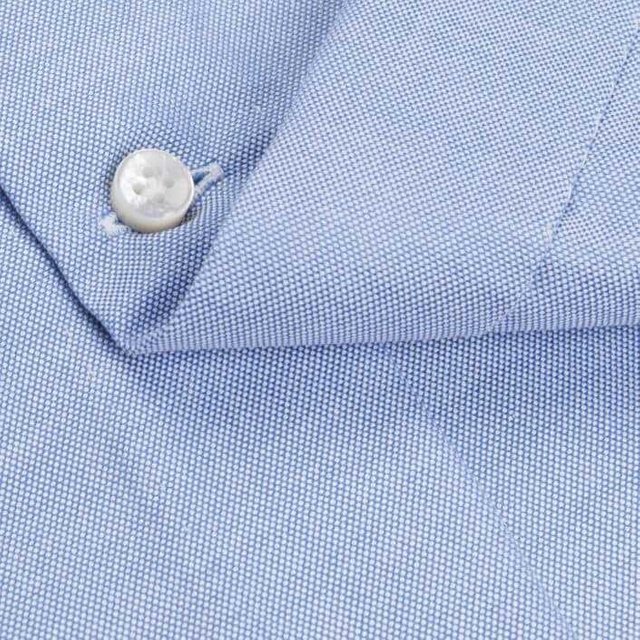
headerB. Long Sleeved Dress Shirt
Wear a cotton dress shirt in light blue or pastel colors. An Oxford dress shirt is absolutely appropriate for business casual wear and can be worn in a relaxed state by keeping the top button undone or wearing a more casual knit tie with it. A simple white oxford shirt is the ideal shirt for business casual wear as it can be elevated to business attire for a last minute meeting with the addition of a tie kept in your desk drawer and a blazer thrown over top.
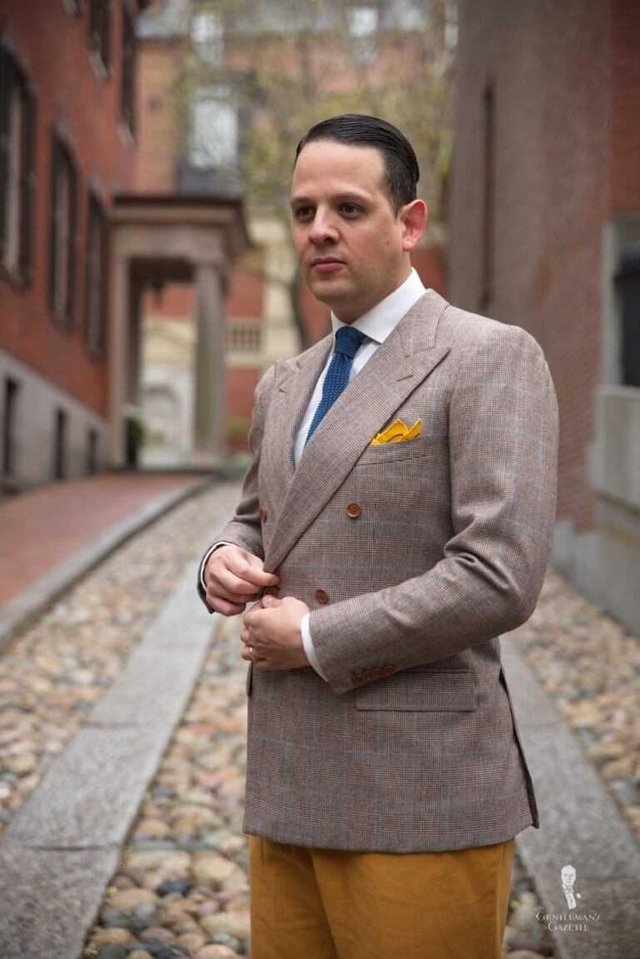
headerC. Neckwear
Neckwear is optional but it certainly elevates your outfit. Ideal ties include grenadine ties or knit ties because they perfectly underline the business casual character.
Bow ties certainly make a statement, and when in doubt stick with the tie.
In case you decide against neckwear, make sure that your undershirt is not visible.
headerD. Trousers

header
Dress Pants
A pair of solid navy, grey or even charcoal dress pants pleated or flat front are the perfect choice for business casual wear. With a dress shirt neatly tucked into it, and a blazer or sports jacket you are good to go.
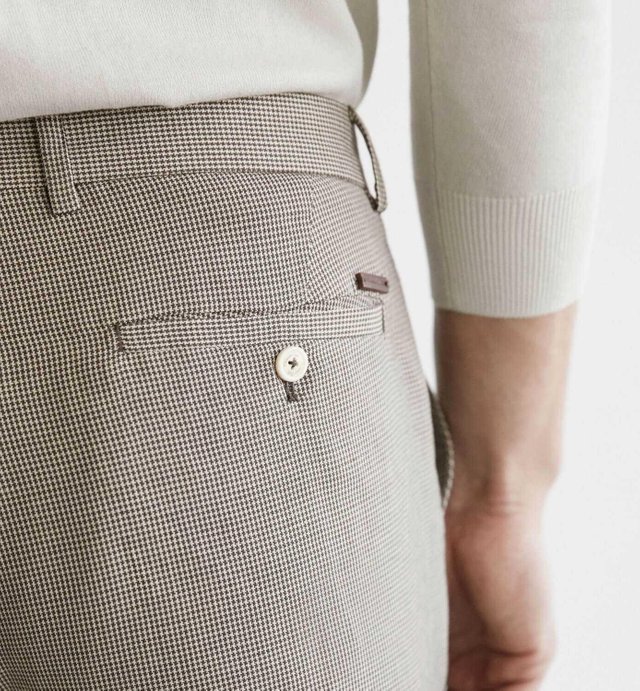
headerChinos / Khaki
Chinos are appropriate in many casual work environments, but should ideally be paired with a contrasting blazer to elevate their casual heritage.
header
Corduroy Pants
Cords can also be worn in lieu of chinos during the colder months of the year. The same rules apply to corduroys as they do to chinos.
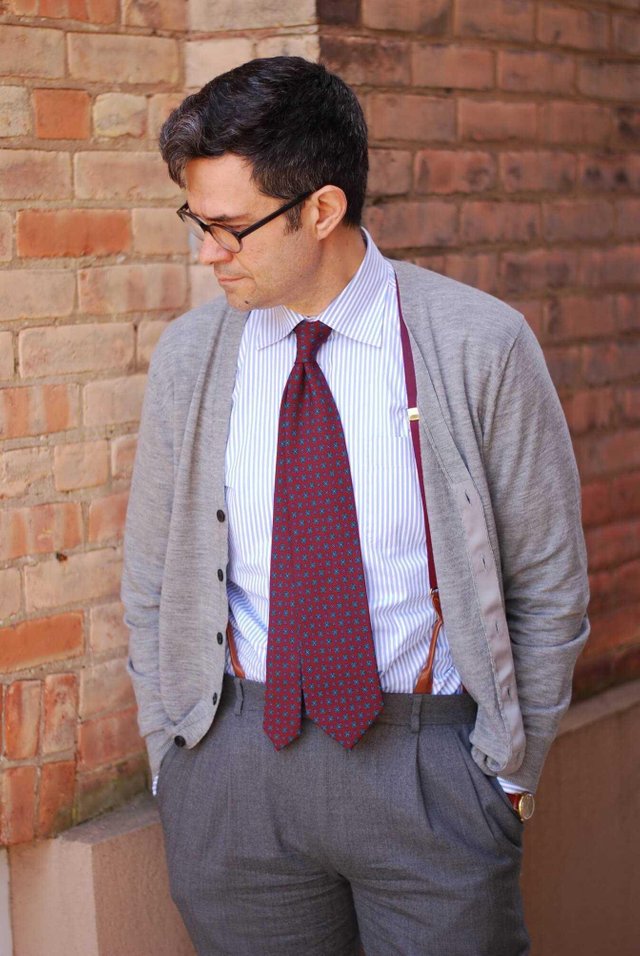
headerE. Sweaters
A sweater vest, cardigan or turtle neck works well during the colder days in addition to your sport coat or blazer. Simply worn over a collared shirt it is only appropriate for Casual Friday. In general a knitted vest will always make a formal garment more casual.
F. Accessories
Accessories are a great way to distinguish yourself from the pack. Choosing a knit tie or pocket square for your blazer pocket will make you look very dapper. Depending on your environment, a boutonniere or a collar pin may work as well, but when in doubt, skip it.
You could also consider a more casual wrist watch with a more formal outfit or pairing a dress watch with a more casual outfit to add a touch of elegance.
Cuff links are also a good way to enhance your outfit, just like tie bars.
Wrist bands are a bit too casual and when in doubt you should skip them.
G. Shoes and Boots
This is where it gets really fun. Rather than sticking with the classic oxford and derby, you can get creative with unique colors like oxblood or wearing more casual dress shoes and boots like monk straps, loafers or chukka boots, Chelsea boots or balmoral boots.
In terms of color, brown shoes are a great companion for Business Casual, and so are burgundy and Oxblood. Click here to learn how to wear and combine them.
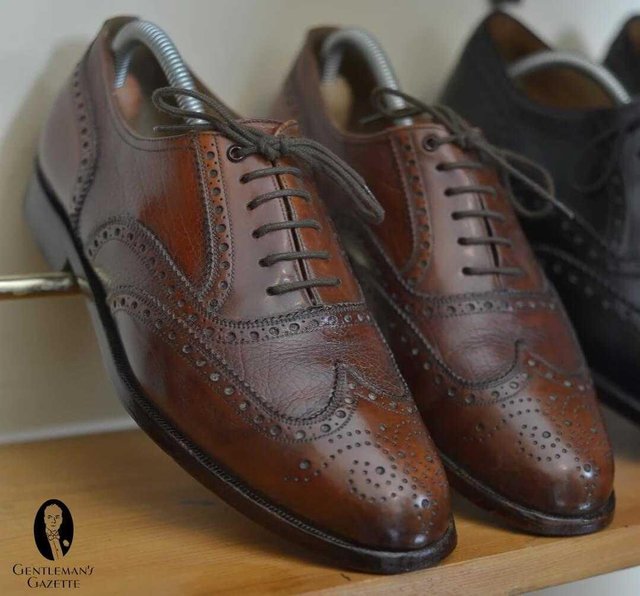
headerH. Bags
Sometimes you see grown men wearing backpacks with their business casual outfits. That’s a faux pas and it makes you look like a little school boy. Instead, go with a leather bag in brown or black that works for you. Whether it’s classic, functional or sleek, clean and modern you can find hundreds of leather bags in various price ranges.
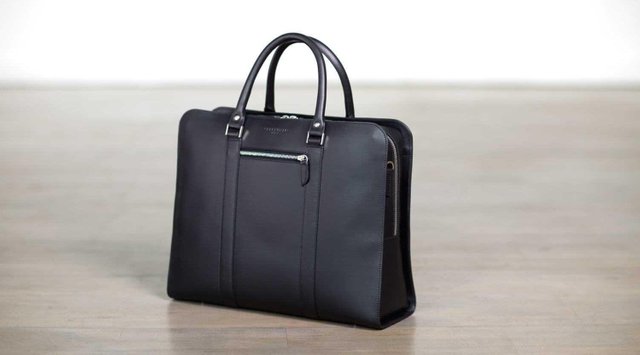
header2. Business Casual in the Service Industry
If you work in the service industry, in sales, trade positions or a job where you interact with the public, you should adapt the business casual standard we mention in 1. above.
If you are just at the office and you don’t have customer contact, your employer will most likely have a more relaxed attitude when it comes to business casual.
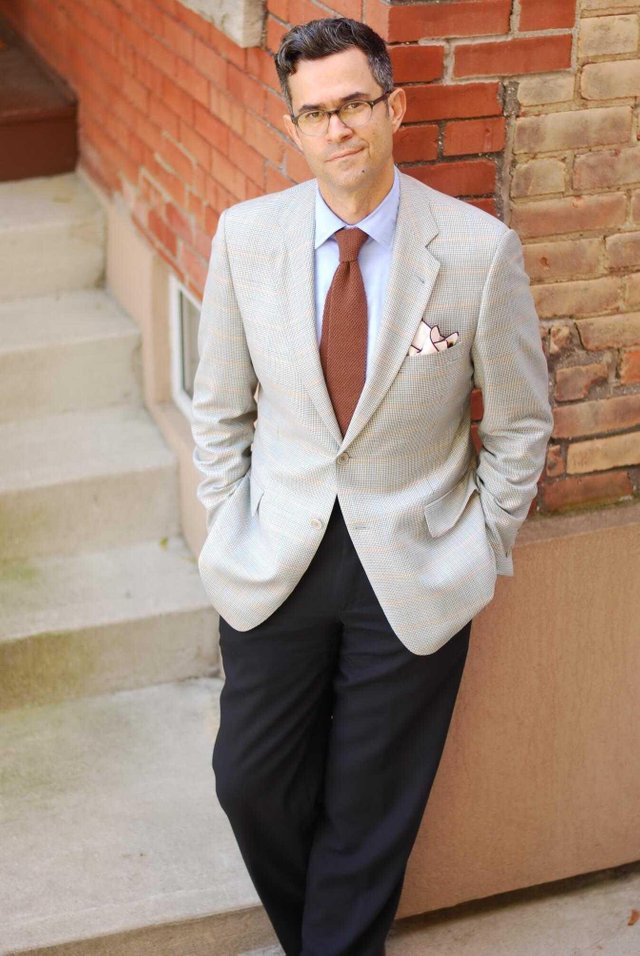
headerA. Jackets
It’s likely that wearing a jacket is optional. So if you don’t want to go with just a dress shirt and a blazer would be too much, consider wearing a vest or a cardigan instead.
headerB. Shirts
The button-down collar shirt is another classic shirt that is acceptable for business casual wear. Alternatively, a long-sleeved polo shirt is acceptable too, if others wear it in the office as well. You don’t want to be the only one wearing polos though.
In this scenario, business casual does not mean wearing t-shirts, casual sweaters without a collared shirt underneath, hoodies, pullovers or any other style of shirt.
header
C. Neckwear
Neckties and bow ties are completely optional, yet they look great with vests, jackets and cardigans.
headerD. Pants
While dress pants are ok, chinos, khakis and corduroys are your number one choice. Dark colors such as navy and grey stain less easily although lighter colors are preferable for the warmer months of the year. Don’t wear denim as that might be considered too informal.
Pants such as denim jeans, athletic wear, sweatpants, draw-string pants, shorts and cargo pants should not be worn, nor should any pant with a camouflage print or large visible logo.
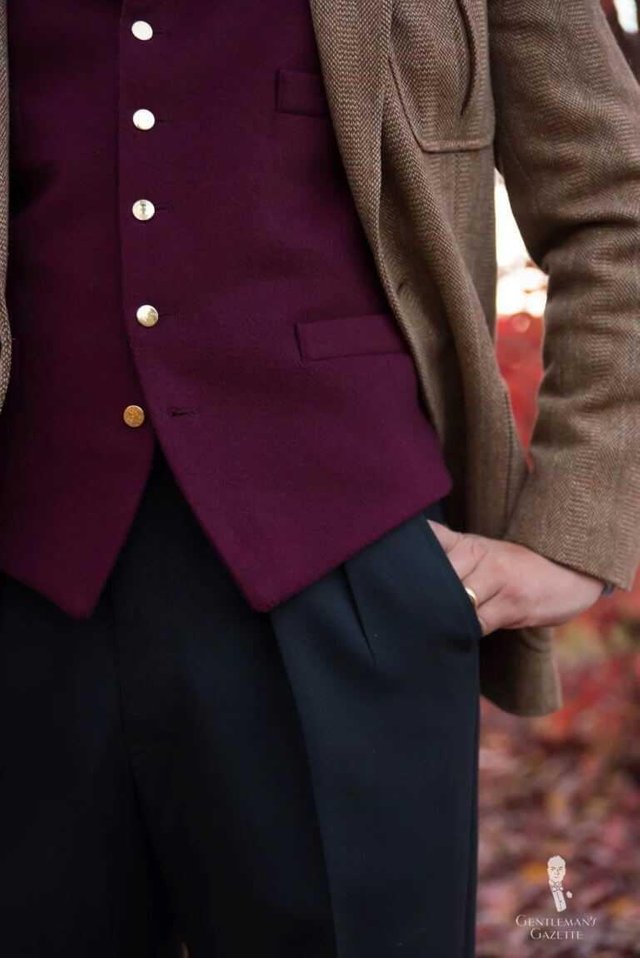
headerE. Sweaters and Accessories
If you decide not to wear a jacket, sweaters and knit vests or cardigans become your best friends. Not only will they keep you warm, but they also look stylish all while adding that casual note to your outfit. Accessorize your outfit as you please but try not to set too many accents, otherwise people don’t know where to look.
headerF. Shoes and Boots
Skip sneakers and tennis shoes but you can choose from a wide range of classic shoes in various materials such as leather, suede and fabric.
headerG. Bags
Leather bags are best but if you want a canvas-leather or all canvas bag may work as well. You can be more daring with your color choice and go with green, yellow, blue or red if you want. 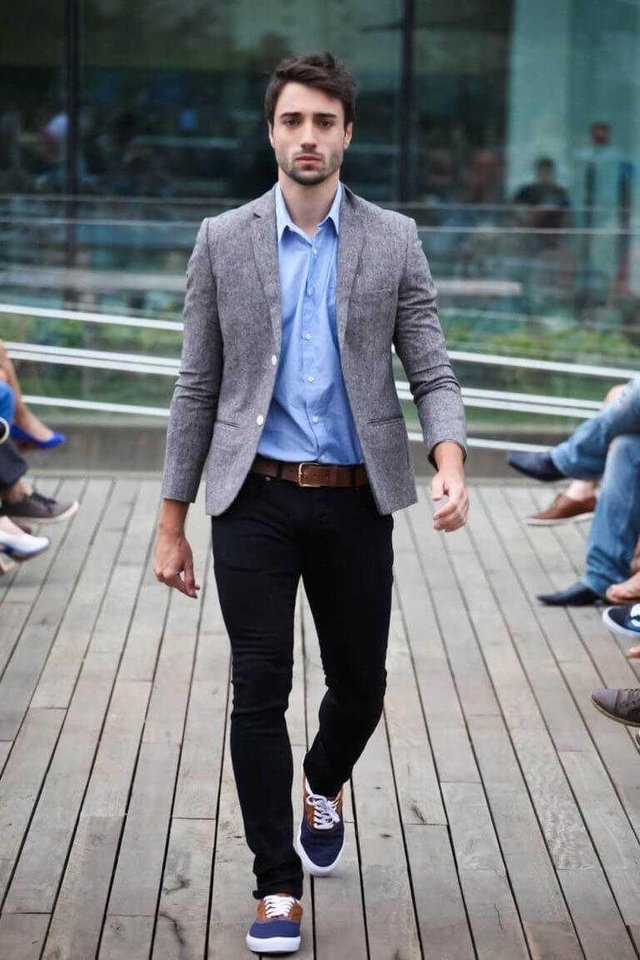
header3. Business Casual in Young Startups
Startups are generally much more casual than traditional jobs. They will likely also not have a company dress code but the hierarchies are typically low and often people can wear whatever they want, especially in a tech related environment.
header
A. Jacket
In most places a jacket is probably too overdressed. Is your startup that place? You’ll figure it out pretty soon. At the same time, startups often have a very accepting culture so if you enjoy dressing up, wearing a jacket the way you like it is a good thing.
headerB. Shirts, Sweaters & Neckwear
While most startups would consider a t-shirt to be just fine, a nice trim cut polo shirt looks much smarter. Sweaters are perfectly acceptable and neckwear is definitely not the norm but again, if you like it, go for it.
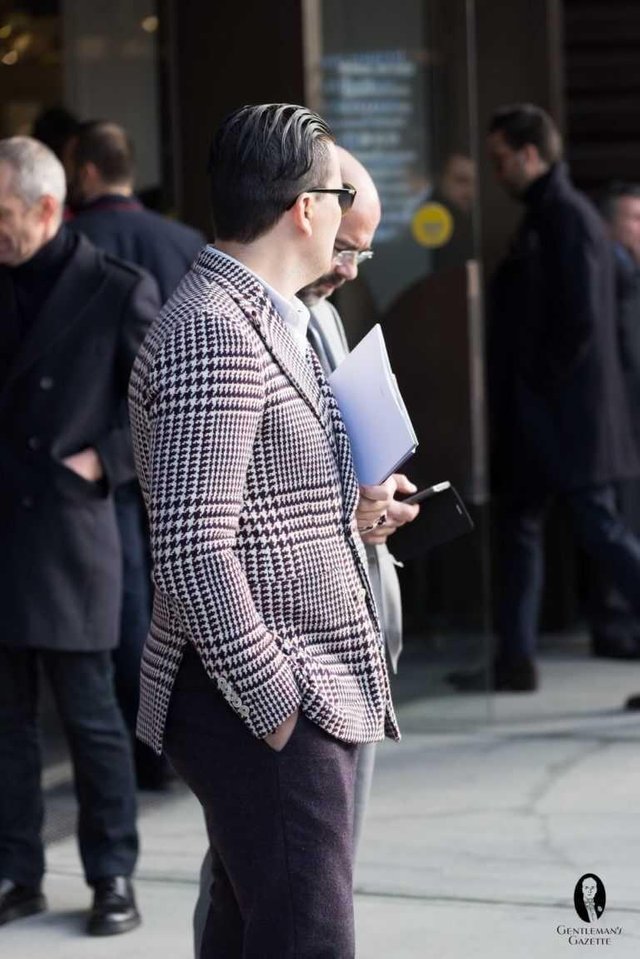
headerC. Pants & Shorts
While it’s totally fine to wear denim at most startups, and you can even find people wearing cargo shorts, you are probably better off wearing lightweight summer slacks such as seersucker because no matter what you do in life, people will at least subconsciously judge you based on what you look like. Being perceived as being well put together, will never hurt you but being a slop can.
Consider wearing a sport coat with jeans for a smart casual look.
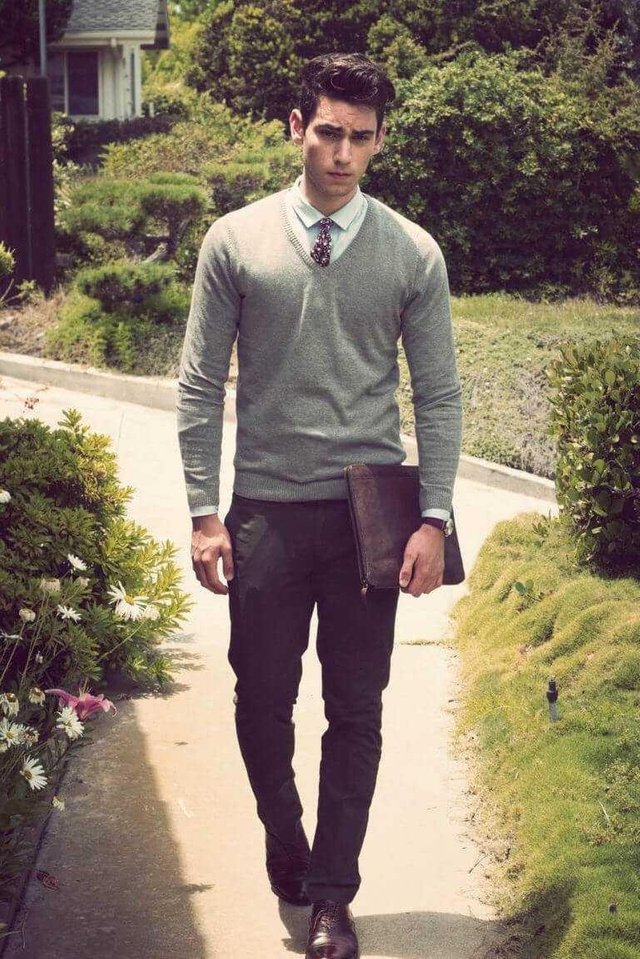
headerD. Shoes & Boots
A nice pair of boots or shoes will always make you look more dapper than wearing sneakers. Instead of just going with brown, you can be more playful and wear stone, red, green or blue suede loafers, driving mocs or spectators. Of course, sneakers or stylish canvas shoes can be acceptable too, and even though some coworker may wear tennis shoes, you will look better without them.
headerE. Bags
A portfolio or a leather / canvas bag are your best bet. In terms of colors, anything goes, even though a bright pink bag with pokemons on it may not reflect positively on you. If you are into tech, bags with built in chargers, cables and camera compartments will satify your needs but please, skip the backpack.
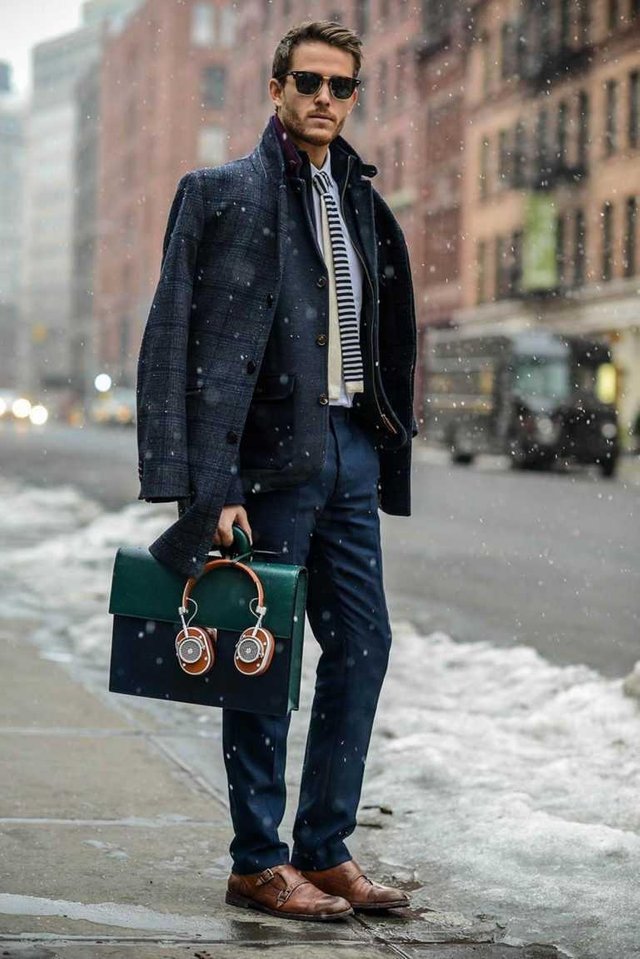
headerBusiness Casual Outerwear
When your job means being on the move, it’s a great idea to ensure your outerwear matches your indoor attire because that active jacket you wear skiing or hiking does not go well with your sport coat.
headerQuilted Jacket
Lightweight, warm and classic the quilted jacket is slightly longer than your blazer and makes you look instantly well put together. At the same time, it is easy to care for, wrinkles easily and can be machine washed.
headerTrench Coat
During the fall and spring season a trench coat will look very dapper. To learn all about this garment, check out our trench coat guide. For a more youthful look, with a trench coat that is shorter than your knees. 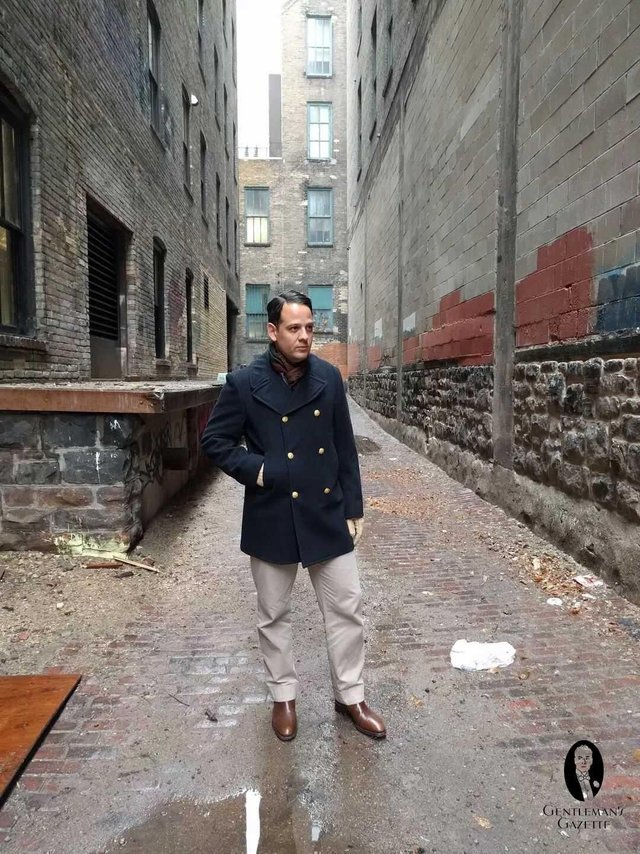
headerPeacoat
For the cold winters, a pea coat is the perfect business casual companion because it is less formal than a full fledged overcoat yet still warm, stylish and functional due to its many pockets.
Scarves and Gloves
A gorgeous paisley scarf or a nice pair of gloves will add the finishing touches to your business casual look.
headerDO’s – When In Doubt, Dress Up
If you are unsure of whether business casual is allowed in your workplace or not, it is best to err on the side of caution and to be overdressed rather than underdressed. Wear a suit and tie the first day. Then you can see how people dress around you and adapt. If you are still unsure about what is appropriate, ask your coworker or superior. 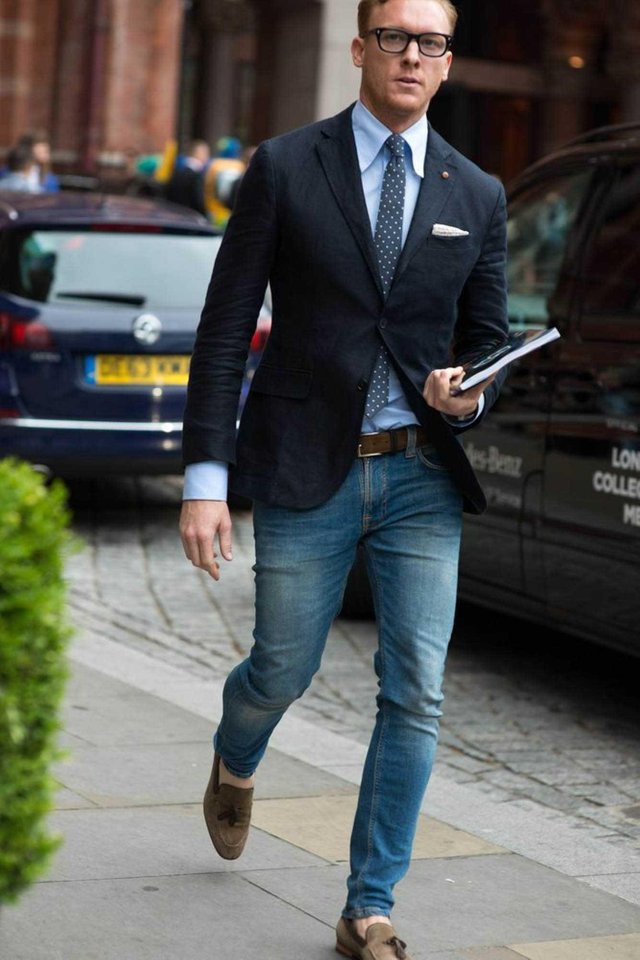
headerDON’Ts – When It’s Not Appropriate
Even for the most casual workplaces, there are times where business casual simply isn’t appropriate. Here are a few of the times you will want to wear a more conservative outfit such as a business suit.
- When you have an important meeting with clients or customers outside your normal range of duties.
- When you have a meeting with a manager or executive in the organization.
- When you will be attending a board or committee meeting.
- During work related events, conferences, and symposiums.
- When representing your company in the media or speaking at an event.
- When interviewing for a position or negotiating a raise with your employer.
- When you work for a firm with a policy that does not permit the regular wearing of business casual attire.
- Don’t wear business casual to a job interview – to learn more about what to wear to an interview, check out this guide.
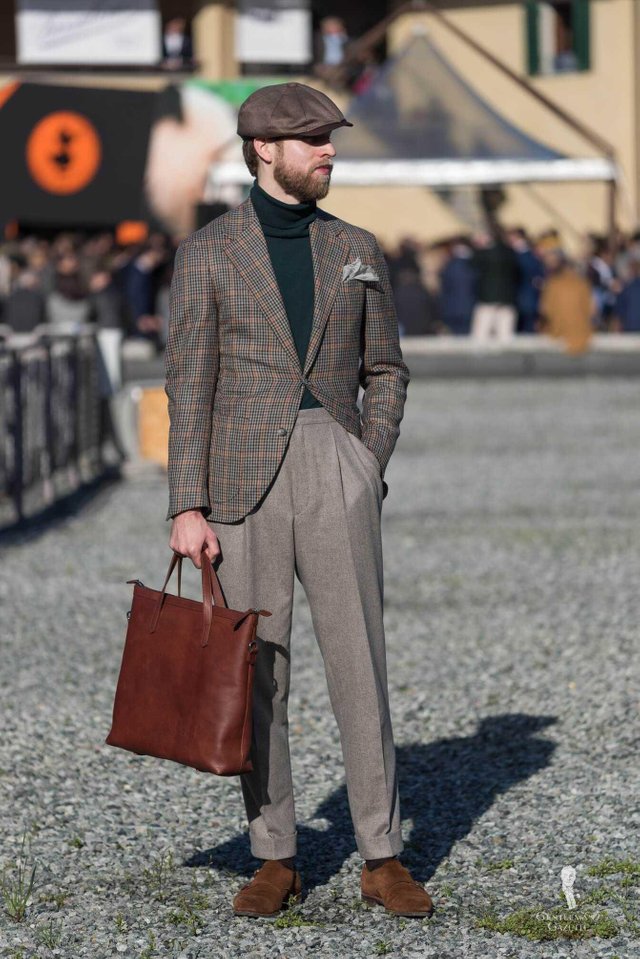
headerWhat about Casual Friday? It depends
Some companies do not support business casual attire but they will allow it on Fridays, others even allow very casual clothing on Fridays. Talk to your coworkers and your boss to find out how your company handles Friday dress codes.
In case there is a more casual dress code for Fridays, but you notice that senior management doesn’t dress that way, you should take them as the lead. It’s more advantageous for you to dress for the job you want, rather than the job you have.
headerConclusion
Business Casual for men is not easy to master because it means different things at different events. Using the three step structure we provide in this guide, you at least determine what ballpark your office or company is in and adjust your outfits accordingly.
If you would wear it to watch television or to a casual barbecue, don’t wear it to work. If you’re unsure whether it’s appropriate, chances are it’s not and you should always dress up a notch because it is always best to be slightly overdressed than slightly underdressed.
Hi! I am a robot. I just upvoted you! I found similar content that readers might be interested in:
https://www.gentlemansgazette.com/business-casual-men-attire/